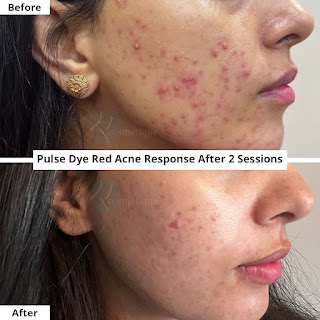Plastic surgery has been around since the early 1900s and has received both positive and negative press. While cosmetic operations are increasingly popular and appear to be more socially acceptable today than ever before. While medical technology has advanced to the point where most surgical cosmetic procedures in DHA are common and safe, surgery isn't for everyone, and the prospect of permanent results can be scary for many. Fortunately, medical technology has also enabled people to receive aesthetic treatments without having to undergo surgery.
Minimally invasive cosmetic procedures are classified as either minimally invasive or non-invasive.
Injectable therapies or needle treatments, for example, are examples of minimally invasive cosmetic treatments that entail some skin puncturing. A non-invasive treatment is one that requires just topical therapies or does not involve puncturing the skin in any way. Because neither minimally invasive nor non-invasive treatments involve surgical intervention, they are an excellent solution for those who choose not to go under the knife to achieve their aesthetic goals.
Skin tightening treatments and body contouring and improvements are two of the key routes that cosmetic surgery can take. Here are a handful of the most common minimally invasive procedures that can be utilized instead of surgery.
Minimally Invasive Skin Lifting and Tightening Alternatives
A surgical facelift is the most well-known skin-lifting therapy. This gold standard approach to face rejuvenation has been around for decades and has gained a global reputation in the medical community as well as among patients. The purpose of a surgical facelift is to remove excess skin that accumulates because of gravity and collagen and elasticity loss. However, not everyone would choose to have their face sliced and sewn, and not everyone has the skin laxity that necessitates such severe surgical intervention.
Furthermore, the operation does not address facial volume reduction, which is an important part of the aging process. As a result, the following therapies can be employed to produce comparable outcomes without the hazards associated with any surgical procedure.
Liquid Facelift
As previously stated, one of the key factors in facial aging is the depletion of facial fat pads, which results in a sunken and gaunt appearance. Previously, the only way to solve this issue was through allographic (from the same patient) adipose tissue harvesting from one location and injection into another. Medical advancements resulted in the introduction of soft semi-permanent implants made of hyaluronic acid gel. Its outstanding biocompatibility and natural outcomes resulted in a flood of diverse goods on the market, allowing clinicians to select the finest material for a tailored strategy.
Dermal fillers have completely transformed the plastic surgery scene, giving surgical-like results without the risks of surgery. When injected, the gel softly expands under the skin, reclaiming previously lost volume for up to 15 months before requiring repeated touch-ups.
Talk To an Expert Before You Decide
Both surgery and injections have their pros and cons. While minimally or non-invasive is always great, some surgical procedures may have longer-lasting and more striking results than their non-surgical alternatives. Whether you go with a surgical procedure or not, the best way to find out what will work for you is to discuss your options with a medical expert in the field to confirm that you can actually undergo any of the treatments you are considering. Depending on your anatomy and overall goals you may greatly benefit from one or another, but a professional opinion would be best to steer you in the right direction.


0 comments:
Post a Comment